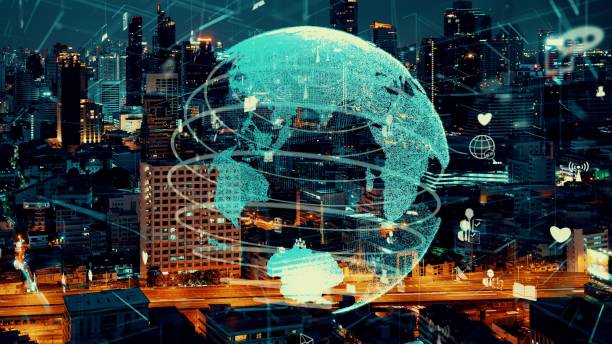Artificial Intelligence (AI) has changed how we work, and the marketing field is not one of them. One of the most recent trends in the marketing field is the appearance of AI influencers or virtual personalities powered by advanced AI algorithms. They have reshaped conventional marketing practices and are altering how brands communicate with their audience. In this post, we’ll examine how AI influencers are transforming the way marketers market themselves, changing how brands promote their products, and creating a new era of influence from digital technology.
What are AI Influencers
AI influencers are virtual characters created by AI algorithms, deep-learning techniques, and artificial intelligence. The digital personas are created to look like real people and come with distinct personalities, which makes them easily recognizable to their intended audience. AI influencers can interact with social media users on various platforms by sharing content and promoting brands by using advanced natural processing of language and image recognition features.
What is the process by which AI Influencers function
AI influencers employ sophisticated algorithms to study user data, learn about their preferences, and then tailor their content according to them. They can post images, videos, and captions that are a hit with followers and create the illusion of a human-like experience. Through machine learning, AI influencers are constantly improving their social media abilities, adjusting to new trends, and improving their content to increase engagement.
Redefining Brand Promotion
AI influencers are revolutionizing brand promotion with a new and engaging way for brands to interact with customers. The virtual characters have realistic appearances and are designed to interact with users via social networks and other channels. They can mimic human interaction; AI influencers provide a feeling of authenticity that resonates with customers.
Enhanced Personalization
One of the main benefits for AI influencers lies in their capacity to create personalized experiences for every user. Through AI algorithms, virtual characters can analyze user data like preferences, habits, and preferences to provide personalized content and suggestions. This degree of personalization lets brands create more specific marketing campaigns that result in better levels of engagement and higher conversion rates.
Increased Reach and Engagement
AI influencers have the potential to reach an enormous audience due to their presence on the internet. Unlike human influencers, influencers can simultaneously communicate with users throughout the day across different platforms. They can quickly respond to questions, provide immediate updates, and interact with their followers. The constant availability and speed of response allow AI influencers to achieve greater engagement and establish stronger bonds with their followers.
Cost-effectiveness and Scalability
Collaboration with AI influencers is a cost-effective marketing method for businesses. In contrast to human influencers, who charge fees and are often restricted in their access, AI influencers are always accessible, thus reducing the costs associated with traditional influencer partnerships. In addition, AI influencer can scale their reach quickly and cater to a large number of followers and not compromising their ability to deliver personalized experiences.
Mitigating Human Limitations
AI influencers overcome the limitations of human influencers. They do not have to be restricted by geographical boundaries and time zone, which makes them the perfect choice for marketing campaigns that span the globe. AI influencers also reduce the possibility of controversy, scandals, and inappropriate actions that human influencers might encounter. Brands can have complete influence over AI influencers’ behavior, which ensures the alignment of their goals with marketing and maintaining the brand’s image.
Continuous Learning and Improvement
AI influencers constantly develop and enhance their interaction through machine-learning algorithms. They collect data from user feedback, analyze engagement patterns, and modify their strategies and content to suit. This iteration process allows AI influencers to grow and improve their strategies to remain relevant and attractive to their followers over time.
Challenges and Ethical Considerations
While AI influencers offer promising possibilities but they also have issues and ethical concerns. One is the possibility of artificially generated content being seen as fake. Building trust and credibility with an audience is essential in influencer marketing. AI influencers must navigate this area with care.
Additionally, there are concerns regarding transparency and openness. Companies need to be clear about the AI characteristics of the influencers to keep consumer trust intact and comply with regulations regarding advertising.
AI Influencers against. Human Influencers
AI influencers offer certain advantages over humans who influence people. They can work at a large and incredibly large scale, reach an international audience and ensure consistency in their communications. In contrast to human beings, AI influencers are not subject to the effects of fatigue, emotion, and personal prejudices. Human influencers have the authenticity of their personal experience and emotional bonds that AI influencers might struggle to replicate completely.
Leveraging AI Influencers in Marketing Strategies
To effectively leverage AI influencers to improve their marketing strategies, brands must be aware of the following factors:
Targeting the Right Audience
Knowing your target audience’s demographics and preferences is vital in deciding on AI influencers. By coordinating the persona and content of AI influencers with the targeted market, brands can improve engagement and increase their relevance.
Building Authenticity and Trust
Transparency is essential to build trust with your audience. Brands must reveal their beliefs about the AI characteristics of their influencers and ensure their messages are authentic and in line with their values.
Evaluation of Success with AI Influencers
Brands need to establish specific objectives along with Key Performance Indicators (KPIs) to measure the effectiveness of AI influencer marketing campaigns. The tracking of the engagement of metrics like brand perception and conversions could provide useful insights into the performance of these strategies.
Industries Embracing AI Influencers
Various industries have taken on AI influencers and seen the success of their marketing campaigns. A few of these industries are-
Fashion and Beauty
AI influencers are making huge advances in the beauty and fashion industry, working with well-known brands and promoting endorsements of their products. Their ability to show various fashions and styles has been a hit well with a discerning audience.




















Comments